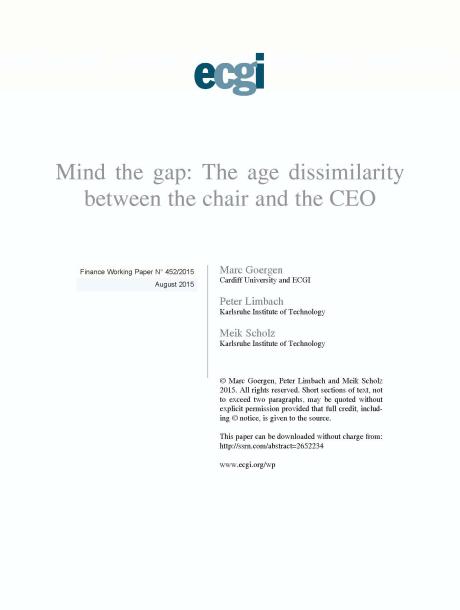
Mind the gap: The Age Dissimilarity between the Chair and the CEO
Abstract
We study the relation between the chair of the board of directors and the CEO. We argue that substantial age dissimilarity between the two - giving rise to cognitive conflict - increases board monitoring and firm value for firms with greater monitoring needs. We find evidence for our hypothesis using data on German two-tier boards. German law mitigates endogeneity concerns as it prevents CEO duality and also restricts CEO power in other ways. Additional identification attempts include CEO-firm and chair-firm fixed effects, random effects, dynamic panel data estimations, and the use of the 2007 financial crisis as an exogenous shock to monitoring needs. We find that during the crisis, when fast decision making and managerial discretion were needed, the link between age dissimilarity and firm value changed.



